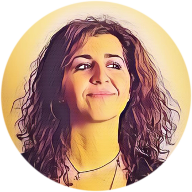Field visit – Jahun #Part Ι
Visit in the MSF project in Jahun, Jigawa state in Nigeria.
They call it ‘Jahun paradise’ and I never
got why and how this started until my recent last visit. Jahun is a city in the
northern Nigeria where MSF runs a maternity, neonatal and an obstetric fistula
unit at the Ministry of Health General Hospital. Yes, I know… I also didn’t
understand when I arrived what are all these and why MSF needs to intervene.
It’s not an emergency! Well… let’s see.
#Story 1
My first visit was in December 2017. We
arrived by car after travelling almost 8 hours.
‘Welcome to Jahun Paradise!’ said Ed, the
Project coordinator. Let me get you around the hospital. Maternity unit,
neonatal, blood bank, fistula and the place for the caretakers…
‘What do you mean?’ I asked.
Here are Muslims with a patriarchal social
system. Women arrive at the hospital and with the approval of their husbands or
of their families and sometimes they need to stay in the hospital for long due
to several complications. Usually, the husband doesn’t stay with them all these
days. And they arrive from far; sometimes it takes 5 hours to get here. So, we
need to provide a place for the caretakers, usually, their mother, their sister
or any woman from the village community. Caretakers are in an open area under
the shadow of one of the few trees in the hospital. Some of them are with their
babies and only a few men are around.
A few minutes later the nurse is calling
me.
‘We will start the delivery soon’, she
says.
In the maternity ward, women are prepared
and checked by the doctors for the childbirth. Young women, most of them under
the age of 18, with big bellies are waiting for their turn. At the end of the
unit is the room for the deliveries. One woman is lying on the bed waiting for
the doctor patiently to start the process.
‘Push… breath and push’ the doctor says and
the Nigerian nurse makes the translation though it seems that the mother has
already understood what she needs to do. The doctor says something. Another
nurse is bringing more tools.
‘We are not sure if we can save the baby’,
he informs me.
What…? Why? What’s wrong? But it’s not the
right moment to make questions.
Two doctors are trying to use the ventouse
method with the vacuum device. They are trying, again and again, the device
seems to be dysfunctional, they try with another one, another nurse is speaking
with the mother, and the mother is on the bed in silence. Only her face
expressions reveal her pain. After almost 20 minutes the baby is coming into the
world facing the first light. A nurse is taking care of the baby, the doctors
are smiling, and the mother is in that bed… still in silence. After only a few
minutes she is getting up, she is wrapping around her African fabric and she is
moving to the next room.
No. Here there is no nurse to announce the
gender of the child to the happy father. Probably the husband has already some
more children and maybe more than one wife.
No. Here there is no screaming from the
maternity ward. Women here have learned not to express their pain.
No. Here there are no blue and pink
balloons. Here the priority is to have medicines, equipment and free and
available beds.
The placenta is in a basket on the floor
and, parents need to bury it soon according to the local tradition.
If there are no complications for the baby
and for the mother, they will move to the annex. It’s the busiest ward in the
hospital. There are two or three women in each bed, with their babies.
The following day the doctor informs that
they are preparing for a Caesarean section. I follow all the hygiene process, I
wear the uniform and I am sitting in the corner of the surgery room to take the
pictures during the surgery.
Oh my God! It took only a few minutes and
it took me days to get over the shock.
The first thing I did is to call my parents ‘Forget it! This will never happen!’
